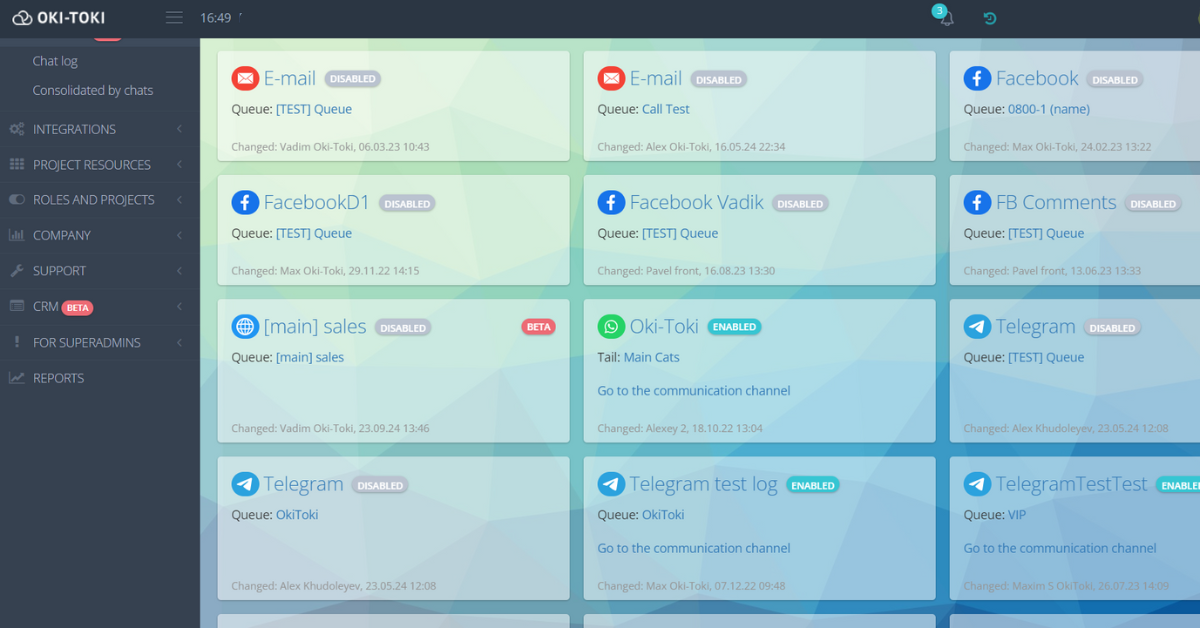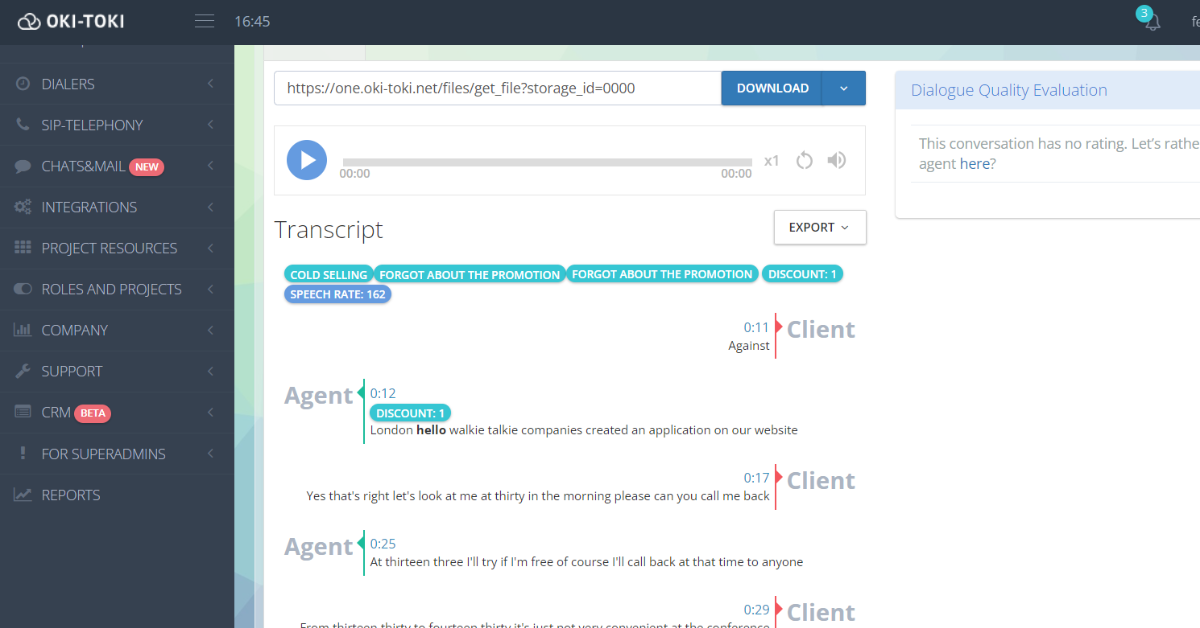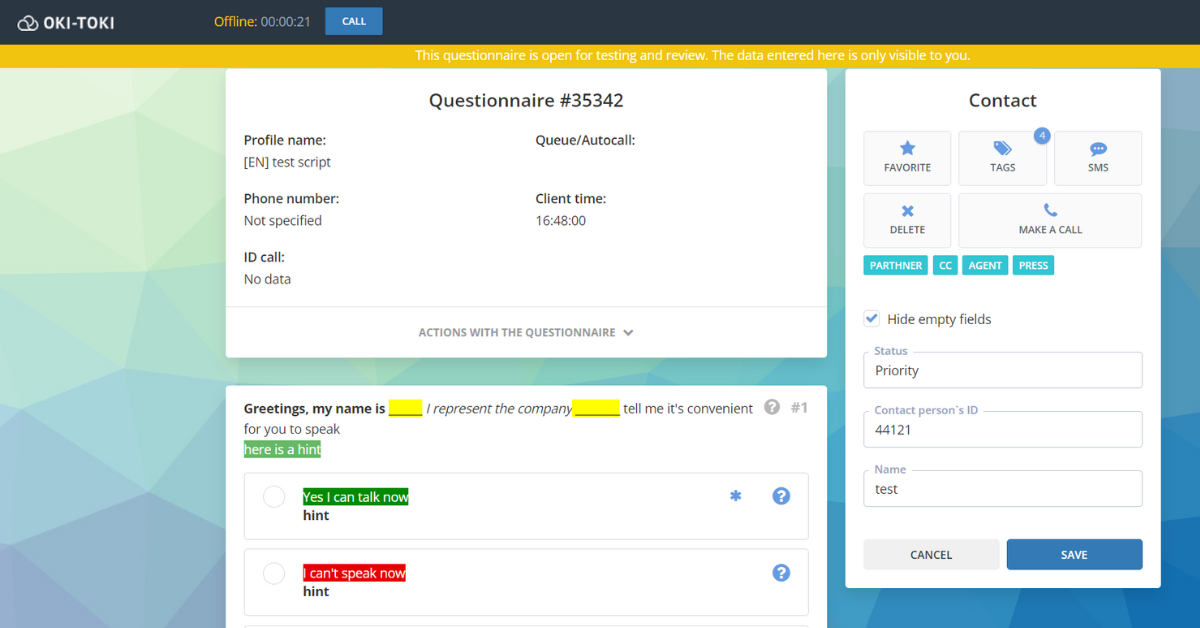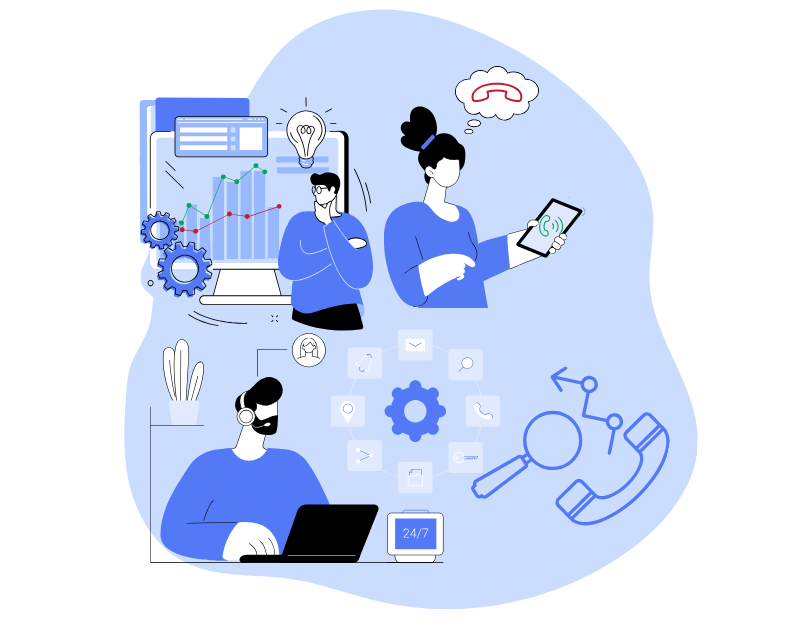Contact centers are complex mechanisms where external calm hides intensive work. The main burden falls on the shoulders of operators who face numerous tasks daily that require quick reactions and a high level of professionalism. When there is a need to optimize the work of operators or increase the efficiency of call center operators, many questions arise immediately: how to increase employee motivation, how to improve service quality, how to reduce the time to resolve requests, and much more.
Let’s explore the methods that can be applied to improve the work of operators to make the process more productive and comfortable. After all, improving the contact center’s performance is not magic but the result of using proven tools and solutions.

Automation — Your Assistant
Automation helps optimize the work of contact center operators by freeing them from routine tasks. Systems like chatbots and IVR can automatically answer frequently asked questions, such as: “What are your working hours?” or “Where is my order?”. This frees up operators for more complex and interesting tasks that require greater attention to the customer. Thus, they can focus on resolving more serious requests instead of being overloaded with monotonous work.
Additionally, automation with the same auto-dialing helps reduce employee burnout by eliminating constant repetitive tasks that cause fatigue and decrease motivation. Implementing automatic call distribution systems, such as “Oki-Toki,” allows for effective distribution of calls among operators, reducing the load and improving the quality of customer service.
Optimizing processes and proper use of technologies help create comfortable working conditions for operators and increase their productivity. The better the task distribution system is organized, the easier it is for operators to work, and the higher the results.
Engaging Training
Training is undoubtedly useful, but it is often organized inefficiently. Most of the training consists of theoretical information that operators rarely apply in reality. It is important for the training to be practical, with real cases that operators can use in their daily work. This approach is one of the most effective methods of optimizing operator work.
Plus, it is very important that the training is not a one-time event. Many companies conduct training once and then forget about employee development. However, to increase efficiency, regular training sessions are necessary so that operators are always aware of new tricks and strategies. For example, you can organize small workshops every couple of months — it won’t take much time but will significantly improve the team’s skills.
Gamification is also an excellent tool for increasing employee motivation. Tasks with bonuses for successful work, whether it’s an extra day off or a bonus, create game elements that make the work process more engaging. This approach stimulates increased productivity of operators.
Light Atmosphere — Easy Work
Effective work of operators is impossible without a comfortable work environment. An atmosphere is needed where employees are not afraid to ask questions or make mistakes. This is an important aspect of improving contact center work: when operators feel supported and confident, their work becomes more productive. This approach is important both in the office and remotely. Psychological support and creating a favorable climate are not just desirable but essential conditions for high employee performance.
You can also add a bit of fun. Organize a contest within the team or a Friday “brain break.” For example, you can come up with tasks in the style of quizzes or team games. Operators in a good mood = increased efficiency of call center operators. It’s simple math. Moreover, it brings the team closer and improves teamwork, and when operators support each other, it directly affects the results.
Feedback is Very Important
Feedback is necessary not only from customers but also within the team. Operators should share their successes and mistakes to learn from each other. This helps to quickly correct shortcomings and improve service quality. Feedback is one of the simplest and most effective solutions for optimizing operator work.
Record conversations, collect “flight reviews,” but without fear and panic. This is not for punishments but for everyone to learn and grow together. You can do this in the format of informal meetings: someone brings coffee, someone brings cookies, and the whole team discusses what can be improved. When feedback becomes a regular practice, employees feel more confident.

Speed Is Not Everything
While the pursuit of quick request processing is entirely justified, it is important to remember that excessive speed can make the client feel that the interaction is superficial. It is necessary to find a balance between speed and quality. Operators should take the time to delve deeper into the client’s request and help solve their problem, rather than just closing the inquiry as quickly as possible.
Here, the use of CRM for operator work helps. When an operator sees the entire history of the client, they understand how to quickly find a solution while doing it quality. Time is saved, and the client is satisfied. Most importantly, the client feels important because the operator didn’t just solve the problem quickly but did so considering their past interactions.

Integration Is Optimization
Operators cannot juggle between a hundred programs and tabs. If everything is integrated — CRM, databases, and more — it’s easier to work. The operator does not have to run through different systems; everything is at hand. This makes work simpler and faster.
Integrating CRM for operator work allows them to immediately see the client’s history and act quickly. This is also part of optimizing operator work — less time searching, more time solving problems. Integrating all necessary data into one system reduces the number of errors and speeds up request processing.
Motivation Is Important
If a person works just for the sake of checking a box, do not expect productivity. Motivation is needed, and not only through money (although it is important) but also through praise, recognition, and the feeling that their work matters. Small bonuses for positive feedback or completing complex tasks can become a powerful stimulus for growth. The feeling of being part of the company’s success creates a strong commitment to the cause, which automatically increases productivity.
Don’t Forget About Technology
If something is not working correctly, it immediately affects the operators’ work. Do not forget about technical support — everything should work reliably, including call center software. Operators should not waste time battling with freezes and crashes. Clear technology — clear work. Regular system updates and equipment checks are the key to ensuring that the contact center’s work does not become a hostage to technical problems.
In Conclusion
To optimize the work of contact center operators, it is important to:
- Automate the work of call center operators
- Conduct practical training sessions.
- Create a comfortable work atmosphere.
- Receive and provide feedback.
- Balance speed and quality.
- Integrate CRM for operator work.
Contact center operators perform important work, and effective operations require good organization. With the right approach, you can create conditions where employees work productively, and clients remain satisfied. Modern solutions, such as Oki-Toki, offer numerous tools for optimizing work: call distribution, mass auto-dialing, CRM integrations, and much more. As a result, operators are freed from routine tasks and can focus on more complex contact center tasks.



